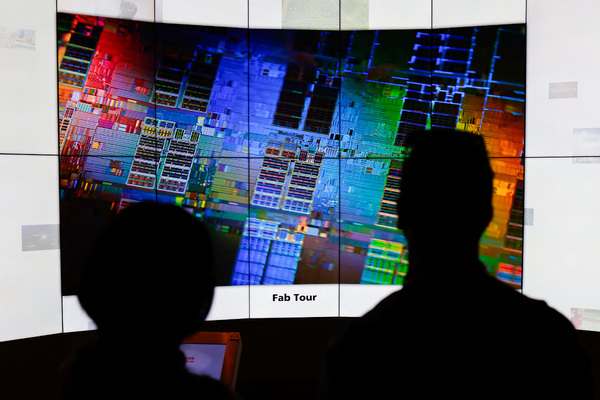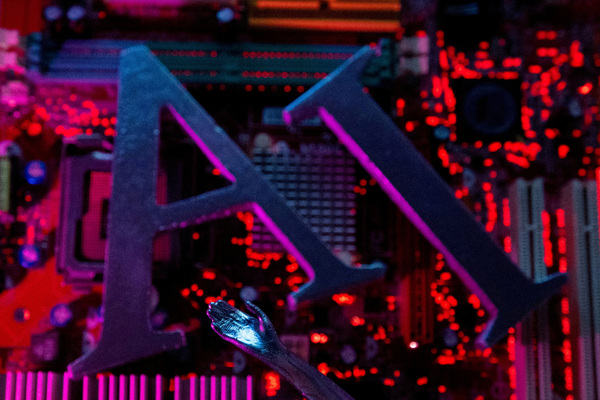Which AI is winning the race for business users?
Commercial versus enterprise gen AI – a new manifestation of the UX-vs-security trade-off

Thanks to Open AI’s decision to make ChatGPT (or at least, a version of it) available to the public at no cost from day one, the technology has become the shiny new toy of an unprecedented number of individuals and businesses overnight.
The initial adoption was dramatic: the number of ChatGPT users surpassed 100 million within two months following its launch in November 2022.
People began experimenting with it to generate text, images and code – sometimes for fun, sometimes to carry out tasks that they would otherwise do manually or pay a professional to complete. And with the home office becoming an integral part of working life for many people, the shift from private to business use was arguably a natural one.
The emergence of shadow AI
No sooner had Chat GPT started to dominate public and private discourse than the term “shadow AI” emerged – essentially an extension of “shadow IT”, the unsanctioned use of cloud-based software at work, to cover the uncontrolled use of gen AI tools by employees.
Although cyber-security experts quickly raised alarms about the risks commercial gen AI could pose to enterprise systems and data, a year or two of unrestrained experimentation followed. Seeking to prevent ChatGPT and its competitors from encroaching on their territory, it took about a year for enterprise software providers to respond with their own gen AI assistants. SAP launched Joule in September 2023; Microsoft’s Copilot became generally available in November 2023; and Salesforce’s Einstein Copilot followed in April 2024.
As AI assistants are integrated into every component of a software suite, copilots are gradually evolving into AI agents – able to interact with each other and carry out subtasks in multi-step processes at the command of an “agent boss”.
Enterprise software today already has capabilities that are on a par with what commercial models can do. Their tools can generate content for job descriptions, sales pitches and product recommendations, generate images, provide analytics and visualisation to support decision-making and accelerate software development through code suggestions, optimisation and debugging.
They are also democratising data management by translating natural language queries into SQL.
Leading enterprise providers – SAP in ERP, Salesforce in CRM, Microsoft in performance management – have the advantage of established ecosystems with hundreds of thousands or – in the case of Microsoft – even millions of business clients.
Still, ChatGPT’s roughly 12-month head start makes closing the gap difficult.
Other evidence suggests that commercial gen AI’s workplace popularity is not only about time on the market but also user experience.
While Microsoft has secured contracts with corporate giants such as Accenture, Volkswagen and Barclays for Copilot licences, employees in some organisations continue to use ChatGPT for certain tasks even when Copilot is available.
Enterprise gen AI’s main selling point against commercial solutions
Even at Amgen, a US biotech company where an OpenAI-Microsoft rivalry has surfaced, ChatGPT remains in use alongside Microsoft products such as Outlook and Teams.
Although enterprise gen AI may still lag behind ChatGPT or Claude in terms of interface and speed, it offers enterprise-grade data security, granular access controls and auditing.
In enterprise software suites, corporate data remains in controlled environments – critical for highly regulated industries such as healthcare or finance.
To this end, SAP, for example, has partnered with NVIDIA AI enterprise, a platform that streamlines the development and deployment of AI solutions, including generative AI.
This partnership gives clients access to dozens of NVIDIA’s generative AI microservices, enabling them to create and deploy custom applications on their own platforms while retaining full ownership and control of their intellectual property.
Data security is increasingly becoming a selling point for enterprise AI systems, which can be seen as a sign of a maturing industry.
Cohere, a Canadian AI company backed by SAP and NVIDIA, specialising in models enabling businesses to automate their processes, identifies itself as “a security-first category of enterprise AI that is simply not being met by repurposed consumer models”.
Closer to home, Birmingham-based OneAdvanced, a sector-focused provider of enterprise software, promotes AI solutions that allow businesses to make the most of their data in a private and secure way.
It also guarantees that customer data remains within UK jurisdiction – an increasingly important requirement as the concept of data sovereignty (a nation’s control over data generated or stored within its borders) gains traction.
The company serves a wide range of UK public sector organisations, including multiple NHS bodies and universities.
Open AI’s push into the enterprise
Signs, however, suggest that Open AI’s ambitions extend beyond commercial gen AI. Less than a year after the release of the original model, it launched ChatGPT Enterprise, guaranteeing that the model wouldn’t be trained on proprietary data and offering industry-standard encryption and strict access controls.
ChatGPT is also being embedded into ERP, CRM and performance management suites. While Microsoft cannot offer every new ChatGPT feature, it leverages OpenAI’s core GPT technology, and other enterprise providers also support its integration.
However, perhaps the clearest signal of OpenAI’s enterprise aspirations came this July, when the company and UK Technology Secretary Peter Kyle signed an agreement to boost public-sector productivity, potentially giving OpenAI access to government data and positioning its software for use in education, defence, security and justice.
This deal followed similar agreements the UK government had struck with OpenAI competitor Google and Anthropic, highlighting the volatility and competitive tension in this space.
These are all signs that, in the enterprise software arena, the race for both users and data is on. It will be up to decision-makers in both the private and public sectors to choose solutions that balance user experience with data security – whether they come from AI-first companies or traditional enterprise software providers.
Most Viewed
Winston House, 3rd Floor, Units 306-309, 2-4 Dollis Park, London, N3 1HF
23-29 Hendon Lane, London, N3 1RT
020 8349 4363
© 2025, Lyonsdown Limited. Business Reporter® is a registered trademark of Lyonsdown Ltd. VAT registration number: 830519543






